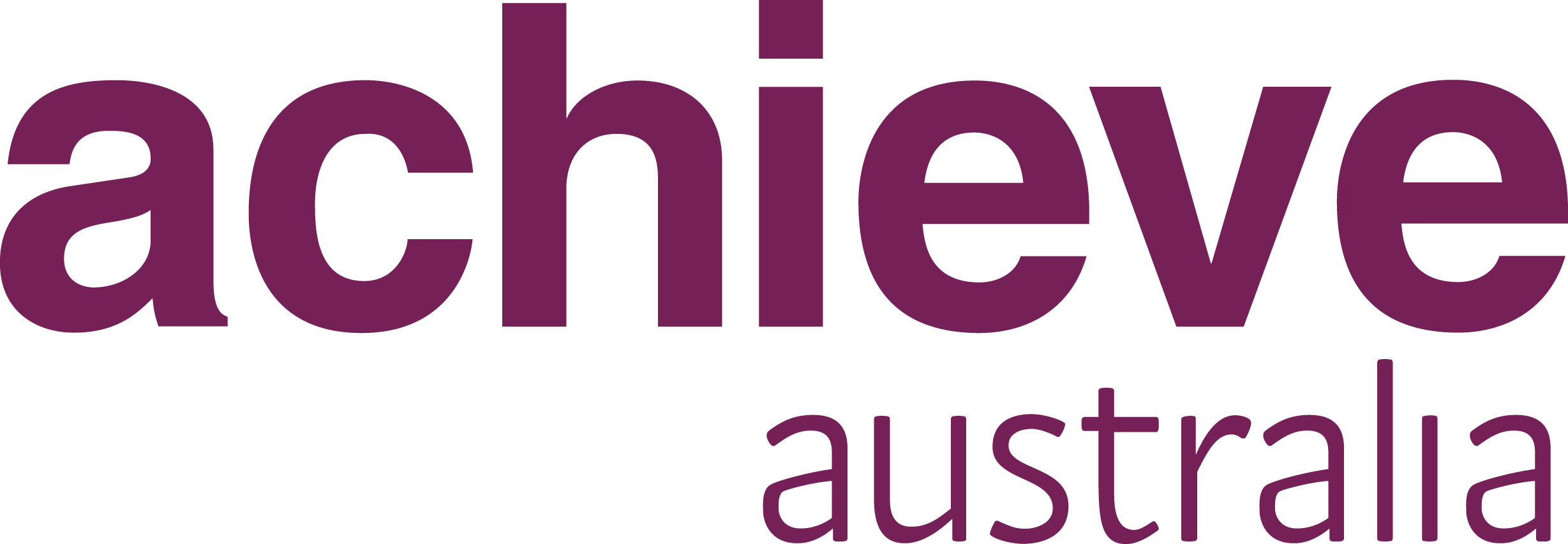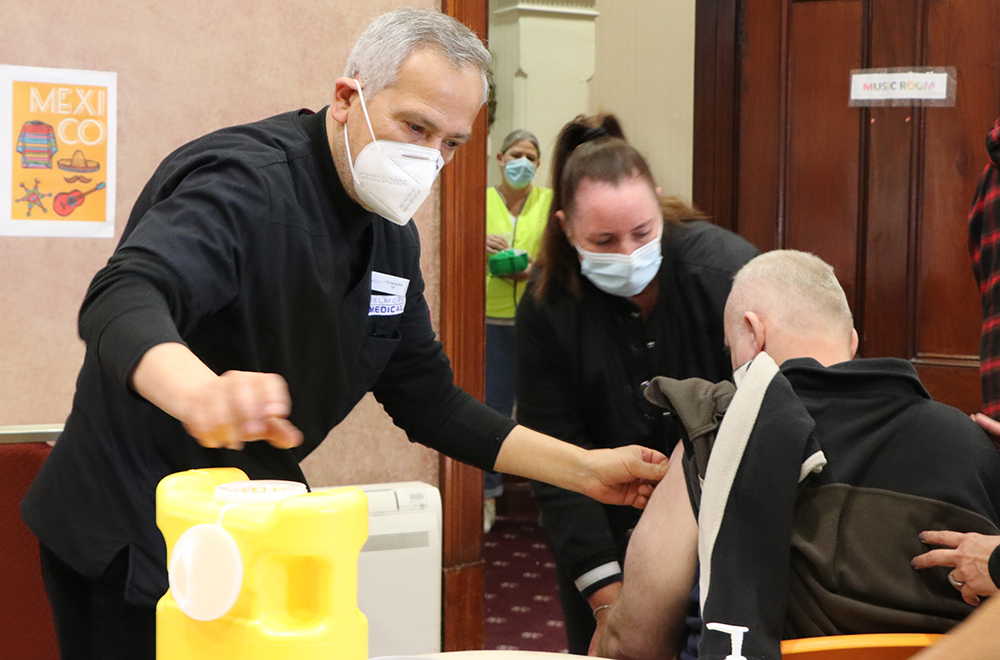On a chilly July 24 morning, a well-orchestrated plan to vaccinate 120 of our clients got underway.
GP Dr Jamal Rifi and his nursing team, supported by Achieve nurses and operations staff, spent the morning administering the Pfizer vaccine to clients living in homes in North Ryde. At around midday, Dr Rifi and his team moved to Araluen where 3 vaccination stations had been set up so clients from other accommodation services could travel to Epping to receive their first Pfizer jabs. Another 100 people comprising clients, supported employees and some more staff received their first jabs about 2 weeks later. Plans were also put in place to repeat the process, so all 220 people received their second jab 6 weeks after their first, and thus full vaccination.
In the days leading up to opening Achieve’s own vaccination hub, chats were held with clients to prepare them, and we informed families and carers. Supplies of personal protection equipment and other COVID safe measures were put in place, Rosters were carefully devised so friendly faces would be on hand when clients received their jabs, and transport was organised to ensure only 2 clients at a time travelled together to maintain social distancing.
The offer from Dr Rifi to provide his time and supply of vaccines was a direct result of the Achieve Australia community banding together to talk to media about the impact of the government’s failure to deliver on its promise to vaccinate people with disability.
In mid-July, 2021 CEO Jo-Anne Hewitt spoke to media about how Australia could not “learn to live with COVID” until people with disability were fully vaccinated. Gabrielle Goodenough and Carmen Martin helped people understand the human cost for families. They shared how their brother Louie, 53, and their close-knit family had struggled with separation as their weekly catch ups stopped with every lockdown.
“Louie’s home is at Llandilo with Achieve but is also with us. When Louie is coming to my place or to Carmen’s we say, ‘Louie is coming home’, not he is coming for a visit. Everyone misses being with him and he finds it hard to understand why he can’t be with us,” Mrs Goodenough said.
“Because of COVID, Louie missed his first family Christmas and Easter in his life,” she said.
The same sense of loss is being felt by clients and their families across all Achieve service areas.
Operations Executive Daniel Kyriacou said Achieve would keep going until all our clients who can receive the COVID vaccination had done so but even then, it will not be the end of our advocacy road.
“We want to see all people with disability in Australia protected against COVID so they can experience full lives once again,” he said.
He pointed to UK data released in July by the University of Oxford and other researchers showing people with learning disabilities were eight times more likely to die from COVID than the general population. Researchers said the data shows risk rate can be higher for people managing certain conditions including Cerebral Palsy and Down’s syndrome. For example, COVID patients with Down’s syndrome have a 36 times higher risk of dying from the infection than the general population.
Achieve Australia made it mandatory for all staff to be vaccinated and backed this with a special campaign to encourage staff to get their jabs. Mr Kyriacou said Achieve had also maintained COVID safety protocols that went beyond those recommended for the sector and it was now time for the NDIA to start doing its bit to keep people with disability safe.
“Even with the best processes, people with disability are vulnerable to the virus. I am responsible for 300 people in our residential service and more in other services. The question I need to answer every night so I can sleep is, ‘have we done everything we possibly can to protect people?’ I can answer ‘yes’.
“If I was responsible for some 420,000 people in the NDIS, I would still be asking myself the same question but at this time, I can’t think of a single action that would enable the NDIA to answer, ‘yes’ to that question,” Mr Kyriacou said.
“The focus has been on people with disability who live in residential care. What about the people with disability who live at home who may need support to get vaccinated or whose family may need that support? The Federal Government should say to the NDIA, your critical focus is on supporting everyone on the NDIS to get access the COVID vaccine,” Daniel said.
“If I was the head of the NDIA, my number one priority during this phase would be ensuring my agency checked in with every NDIS participant to ask about their vaccination plan and to find out if they need funding support or assistance to register themselves, understand all the information and then receive the vaccine,” he said.
This story was first published in the Winter edition of Enable magazine, 2021.
Faisal Rifi and the Belmore Medical team worked with Achieve again in January 2022 to set up a drive-through clinic so our clients and the staff who accompanied them could receive their COVID booster shots. Achieve Australia is very grateful to Belmore Medical for being so generous and responsive to our requests for help.
Explore more topics
- Accessibility
- inclusion
- Achieve Australia
- disability
- belonging
- Community
- Employment
- The Sewing Basket
- disability employment
- Accessible
- Advocacy
- Celebrating people we support
- My Life My Say
- NDIS
- 2022
- Meet our Achievers
- blog
- people with disability
- travel
- women with disability
- Art
- Australia
- COVID-19
- Disability services
- Good nutrition
- Health tips
- Mental wellbeing
- NDS
- Sharing milestones
- Sydney
- achievable
- assistance dogs
- depression
- disability communications
- disability inclusion
- election
- employee of the year
- intellectual disability
- motherhood
- pregnancy
- social inclusion
- support workers

